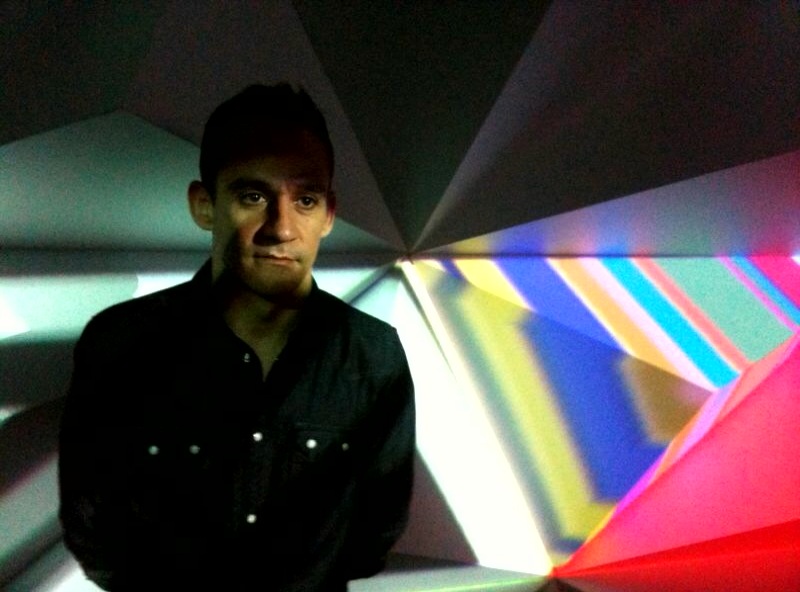Search
To search for an exact match, type the word or phrase you want in quotation marks.
A*DESK has been offering since 2002 contents about criticism and contemporary art. A*DESK has become consolidated thanks to all those who have believed in the project, all those who have followed us, debating, participating and collaborating. Many people have collaborated with A*DESK, and continue to do so. Their efforts, knowledge and belief in the project are what make it grow internationally. At A*DESK we have also generated work for over one hundred professionals in culture, from small collaborations with reviews and classes, to more prolonged and intense collaborations.
At A*DESK we believe in the need for free and universal access to culture and knowledge. We want to carry on being independent, remaining open to more ideas and opinions. If you believe in A*DESK, we need your backing to be able to continue. You can now participate in the project by supporting it. You can choose how much you want to contribute to the project.
You can decide how much you want to bring to the project.

The works of Allan McEwen portray a time and a space in which the recipient of the message has lost his relevance. The intimate language has taken a dialectic of the public. The important thing is to publish, without accepting comments. We create continuous notifications, personal messages that do not expect to initiate a dialogue. Stories that begin and end in a few words.
Corporations, in the lost battle to create affective bonds with their consumers, are forced to create irrelevant contents to fill an increasingly evident void. Their digital advisors push them to do so with the promise of more followers/consumers/faithful. Professionals from all fields publish books that nobody reads, create blogs, organize workshops, write in newspapers, appear on the radio, sneak into television for a few fleeting minutes… Meanwhile, Rubius, one of the youtubers with more global audience, has restricted his activity due to anxiety problems. Many teenagers that like him who have made digital media their way of life and who have millions of audiences that have gone through psychological emergency processes. All this is too reminiscent of the struggle for the audiences that would settle CBS, NBC or the ABC in the 70’s. These teenagers have become means of communication. Just as all of us, with the psychological effects that this implies. We have become objects and subjects at the same time.
In reality shows the principle of sincerity is imposed. The message in all its nudity. A unilateral discourse that builds itself at the same time as the contestant draws his triumph. There is a chorus around a single character who communicates with the audience. Such as those spaces designed for torture that Amelie Northom drew in Sulfuric Acid. In the personal communication the same scheme is reproduced. We have stopped talking on the phone in order to use written language. Sometimes the messages that we send/receive are too similar to those of McEwen. Avoiding dialogue in situations that would require it. Totally immersed in the world that Bauman imagined where we technologically block the other to avoid human contact.
The compulsion to emit has become a contemporary weapon. It echoes any social addiction in which a substance does not intercede. It is just a habit. That cannot be controlled, that is progressive and that cannot be stopped willingly. Screen addictions already lead thousands of individuals to recovery in the U.S. to the same clinics where traditional addictions are treated. The treatment is one: stop emitting. Everything happens in that euphoria of the screens that Baudrillard proposed, where a hyper-reality of an electronically aestheticized happy world, of which paradise is on the screen and of which hell is equivalent to coming out of it.
The issuer is the protagonist. He demiurge. But in this disregard for the other he isolates and self-destructs himself. If Richard Serra said in 1973 that individuals were delivered to advertisers through television, today we are delivered to a permanent live. Tinted with social, political, sexual, and philosophical atavistic, retrograde and asphyxiating notions. As aggressive as irresistible. And, furthermore, as Bourdieu explained, by unravelling the functioning of television, participating in a great symbolic violence. Or not so symbolic. Nasim Aghdam, Iranian youtuber, at being stripped of the ability to continue broadcasting her videos of abdominals dressed as a zebra, burst into the offices of youtube in California hurting several people before committing suicide. Many teenagers have already died doing an impossible pirouette with the promise of taking a photo that opens the doors of the digital Olympus.
In this symbolical new space, the issuer becomes the message. He consumes itself. And he lies trapped in an image.

"A desk is a dangerous place from which to watch the world" (John Le Carré)